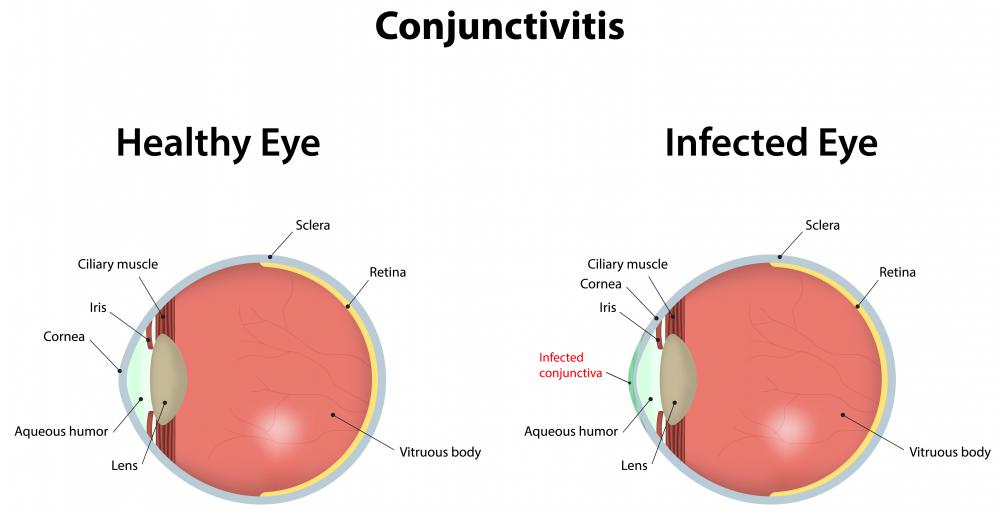At WiseGEEK, we're committed to delivering accurate, trustworthy information. Our expert-authored content is rigorously fact-checked and sourced from credible authorities. Discover how we uphold the highest standards in providing you with reliable knowledge.
In Medicine, what is Atopy?
In medicine, atopy is a genetic predisposition to allergen hypersensitivity that occurs in the presence of other related chronic conditions. Commonly associated with atopic dermatitis, individuals with atopic disease produce excessively high levels of the antibody immunoglobulin E (IgE) when exposed to certain environmental allergens, often resulting in pronounced skin irritation and inflammation. Treatment for atopy-induced skin inflammation involves the administration of topical and oral medications to alleviate irritation. Proactive measures to reduce the presence of allergens in one’s environment are also recommended to lessen symptom severity and atopic dermatitis flare-ups.
The hereditary nature of atopy is such that individuals who exhibit allergic skin irritation may also experience respiratory issues in response to their exposure to certain allergens. Individuals with atopic dermatitis are often also diagnosed with allergies and asthma, both of which may be triggered by ingested or inhaled allergen-specific stimuli. These related conditions generally present in early childhood and may continue into adulthood. The combination of dermatitis, allergies, and asthma is commonly referred to as the atopic dermatitis triad, or atopic disease.

Individuals with atopic dermatitis may experience a variety of symptom manifestations on any part of their body. Skin rashes and irritation are considered to be trademark presentations of this form of atopy. Rashes often present with raised liquid-filled bumps and skin discoloration that cause intense itching, similar to that experienced with exposure to poison ivy or oak. Once blisters rupture, the affected skin may adopt a scaly appearance accentuated by the scabbing over of ulcerated tissue.

There is no definitive test utilized to confirm a diagnosis of atopy or atopic dermatitis other than a review of one’s medical history and visual evaluation of his or her skin. Those who are aware of their hypersensitivity to certain allergens are often encouraged to take proactive measures to reduce their chance for reaction by avoiding known allergens, or triggers. Some people may possess a heightened sensitivity to certain cleaning products, materials, or foods. Others may experience adverse reactions when in the presence of environmental pollutants, such as cigarette smoke or smog. The presence of Staphylococcus aureus bacteria often plays a role in the severity of one’s symptom manifestation and may contribute to the development of impetigo.

Treatment for atopic dermatitis is centered on alleviating symptoms and usually involves the administration of steroidal, immunomodulator, and antihistamine medications to reduce inflammation, ease itching, and suppress the immune system's response to the existing inflammation. In the presence of infection an antibiotic may be administered to eliminate the existing bacterial presence and prevent reinfection. Topical medications may also be administered in moderation to prevent skin chafing and alleviate sensitivity. Complications associated with atopic dermatitis include conjunctivitis, or inflammation of the eye, and a thickening of the skin, known as neurodermatitis.
AS FEATURED ON:
AS FEATURED ON:














Discuss this Article
Post your comments